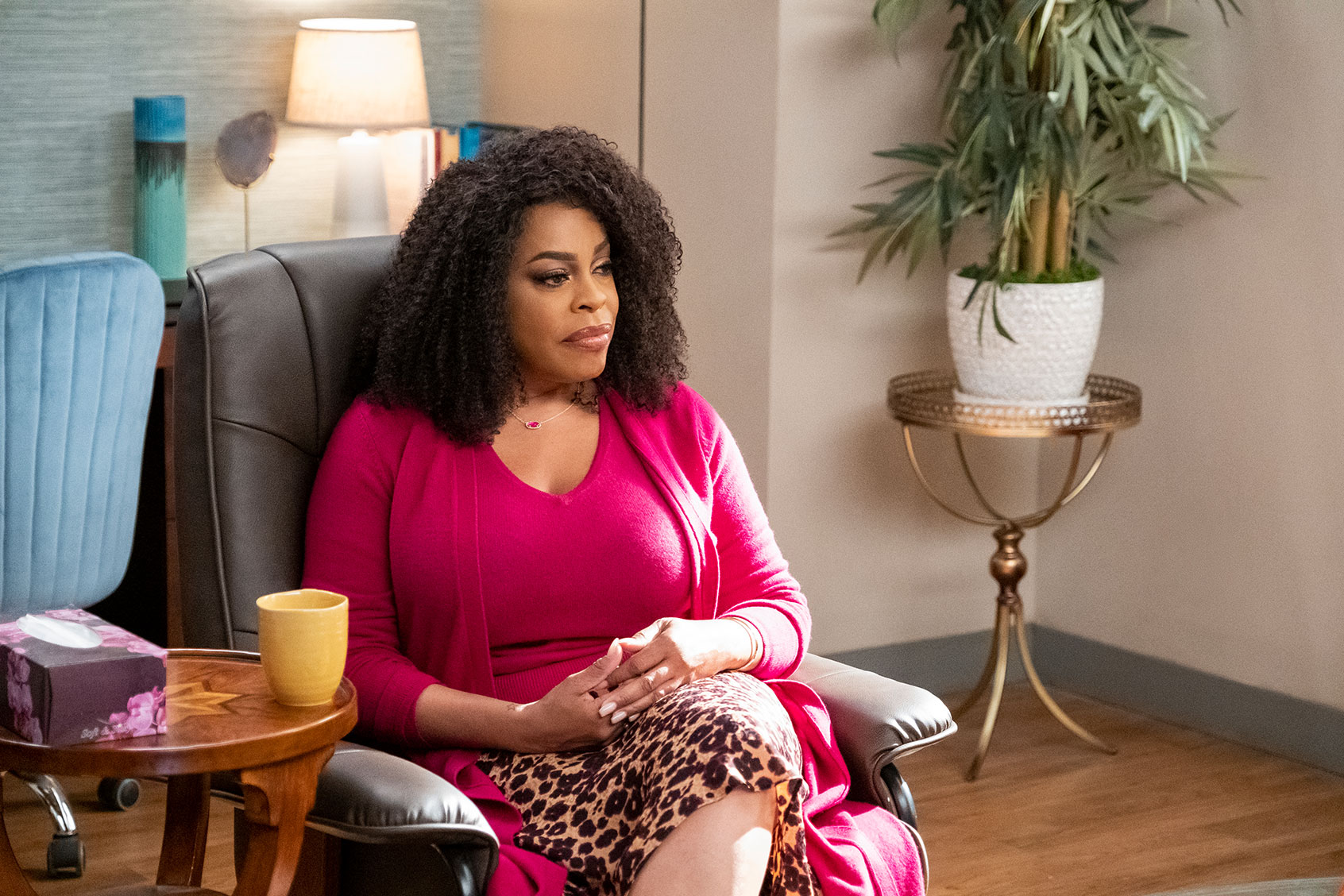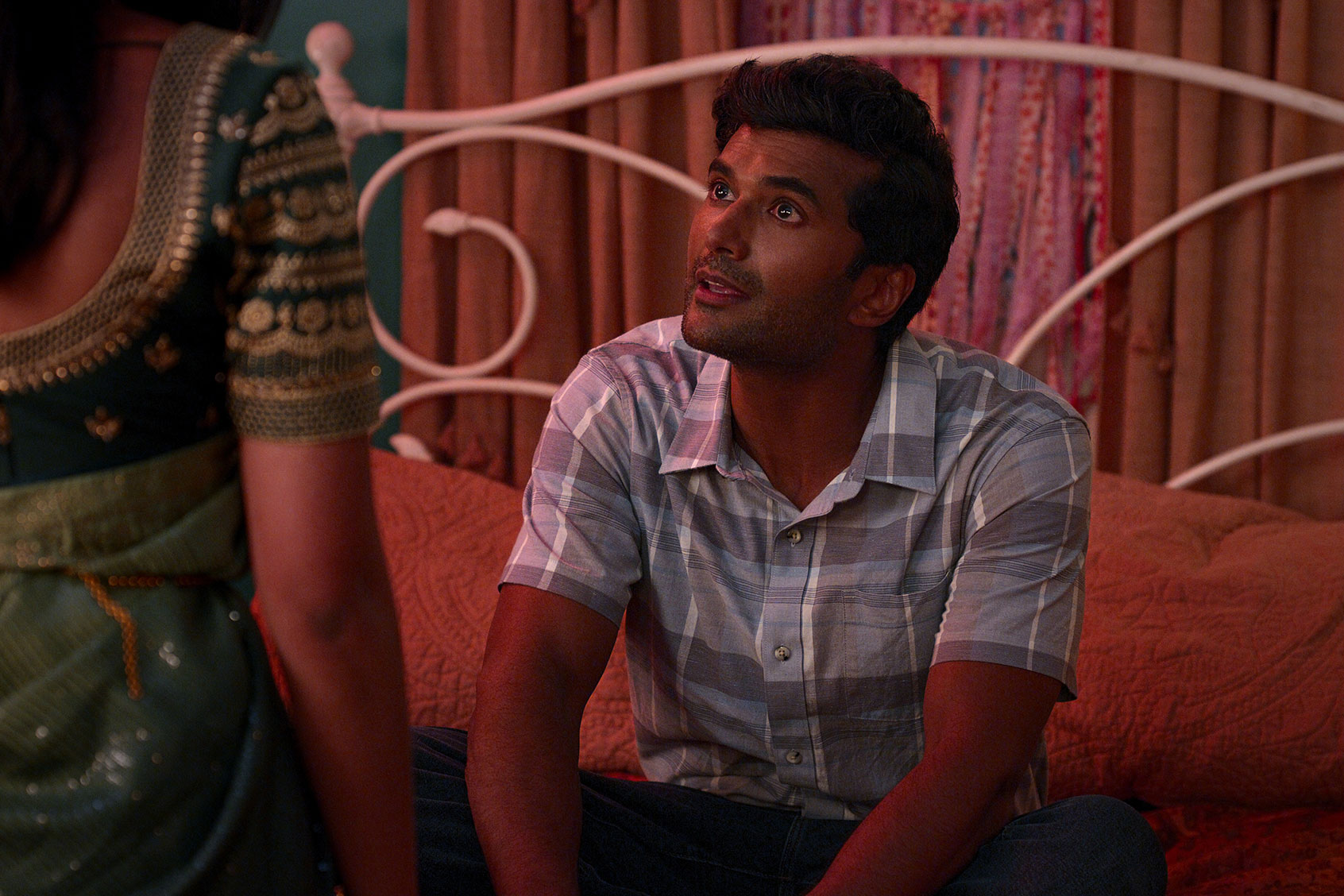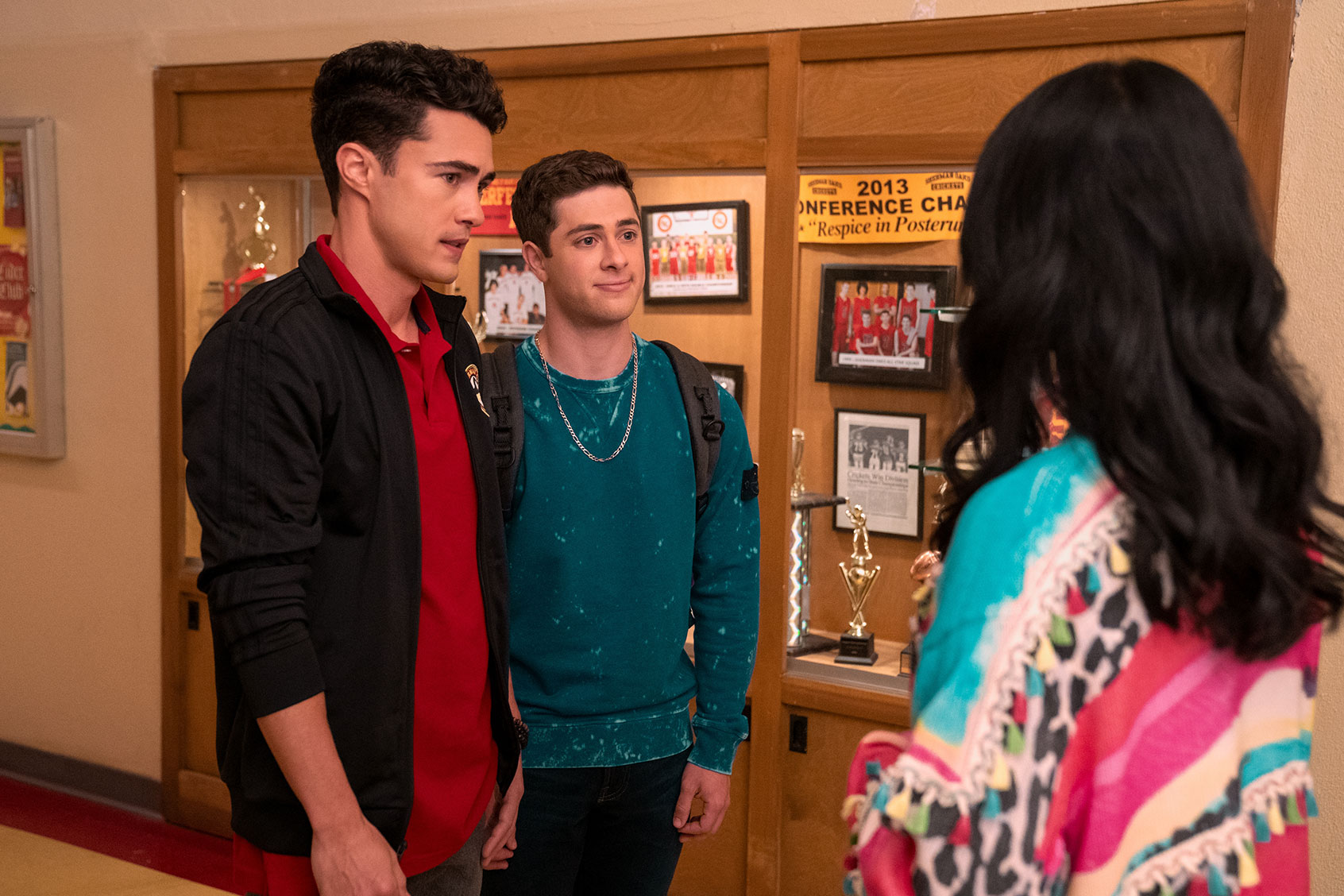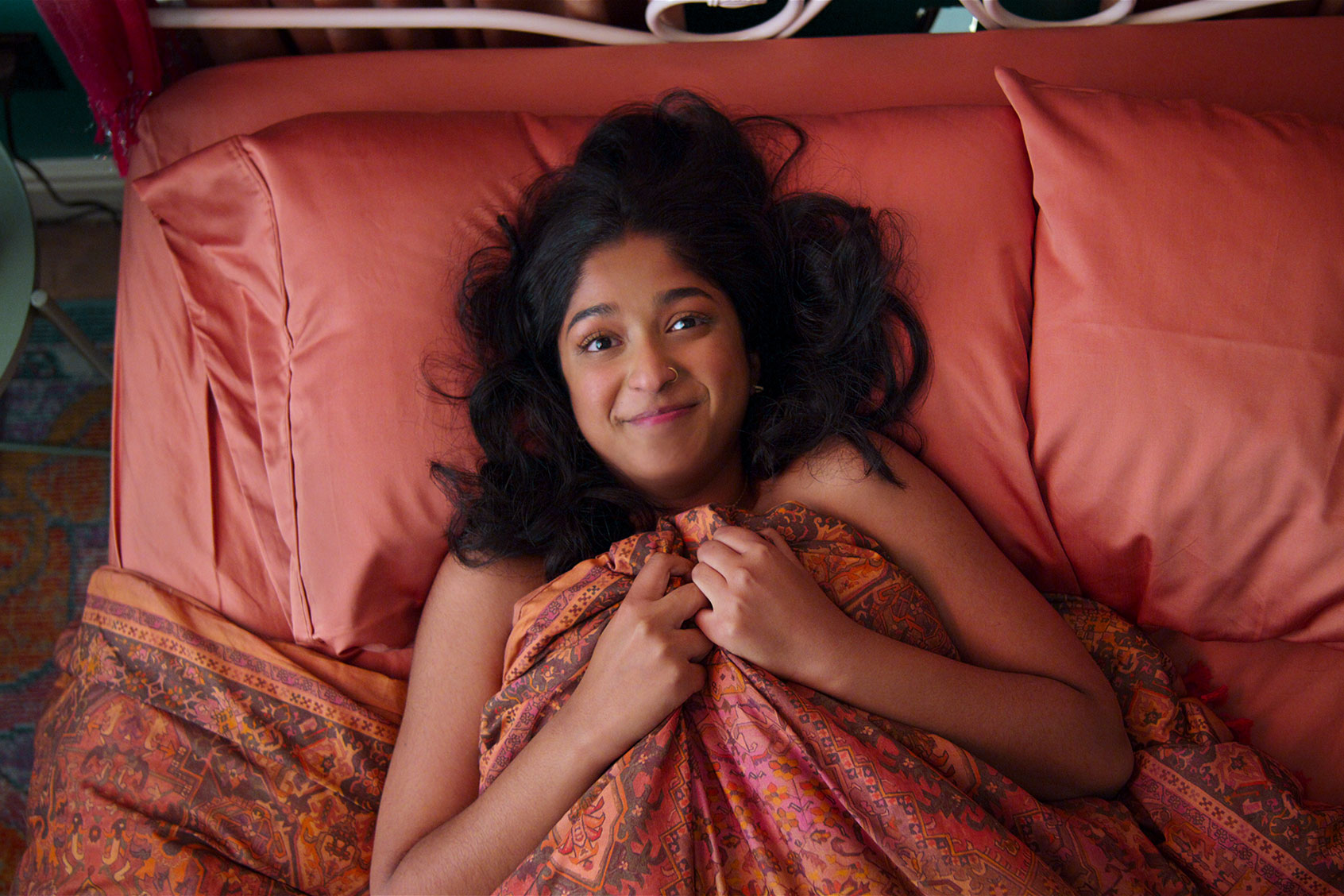Move over, Ben and Paxton — team Dr. Ryan has entered the chat.
Devi distracts herself from her feelings by . . . checking off every notch on the coming-of-age rom-com checklist. Dr. Ryan doesn’t fall for the distraction, but audiences do.
Netflix’s teen dramedy “Never Have I Ever” began with one goal for teen nerd Devi Vishwakumar (Maitreyi Ramakrishnan): get laid. Most people wouldn’t go up to the guy they’ve had the hots for since grade school and ask them to take their virginity, but most people aren’t Devi Vishwakumar. The often shirtless upperclassman Paxton Hall-Yoshida (Darren Barnet) is willing to humor Devi’s teenage dream, and over the course of four seasons, they’ve bounced between friendship and dating. Meanwhile, Ben Gross (Jaren Lewison) is a classic case of enemies to lovers. Devi has feuded with Ben for just as long as she’d been lusting over Paxton, and their longstanding rivalry pushed both students to work harder to best the other. Ben is the first to notice when Devi is having a rough day, and he’ll lower his sword to make sure she’s OK before getting in a playful dig. These peers have also had their own on-off relationship. But as hard as Devi tries, neither boy can replace a therapist’s love.
While fans are busy duking it out over whether Ben or Paxton is the right choice for Devi after the series finale, the reality is glaringly obvious: It’s her therapist. And no, I don’t mean whatever dark corner of fanfiction romantically pairs the two together (I’m pretty sure the California Board of Psychology would have a field day over an underaged doctor-patient dalliance). However, of Devi’s many relationships in the show’s four-season run, Dr. Ryan (Niecy Nash) sparks growth and self-love that no other character can match.
Everyone can benefit from therapy, and even Devi’s mom — who says therapy is for white people — enlists the help of Dr. Ryan, who helps Devi deal with her father Mohan’s (Sendhil Ramamurthy) sudden death, which occurs in front of her at an orchestra concert just before the events of the first season. We learn that one of the ways that Devi reacted was by temporarily losing her ability to walk, which Dr. Ryan deems a grief-based psychosomatic weakness. But instead of confronting her loss, Devi distracts herself from her feelings by bottling them up and focusing on getting a boyfriend, losing her V card and checking off every notch on the coming-of-age rom-com checklist. Dr. Ryan doesn’t fall for the distraction, but audiences do.
 Niecy Nash as Dr. Ryan in “Never Have I Ever” (Lara Solanki/Netflix)Dr. Ryan makes it abundantly clear in her very first scene that Devi’s Paxton-centric daydream is a prime example of avoidance. Their sessions often consist of the doc sitting on an armchair in her brightly colored office while Devi paces and talks a mile-a-minute about everything but her dad. Their first session we see opens with a bewildered Dr. Ryan refusing to tell the underage Devi that she’s bangable because it’s wrong “ethically, legally and most of all, it’s creepy.”
Niecy Nash as Dr. Ryan in “Never Have I Ever” (Lara Solanki/Netflix)Dr. Ryan makes it abundantly clear in her very first scene that Devi’s Paxton-centric daydream is a prime example of avoidance. Their sessions often consist of the doc sitting on an armchair in her brightly colored office while Devi paces and talks a mile-a-minute about everything but her dad. Their first session we see opens with a bewildered Dr. Ryan refusing to tell the underage Devi that she’s bangable because it’s wrong “ethically, legally and most of all, it’s creepy.”
From the jump, we can tell that Dr. Ryan keeps up with Devi’s banter and Gen Z colloquialisms, all while being Devi’s softspoken yet sassy voice of reason while she attempts to get her patient to pivot to why she’s really there.
Between sentiments like “Knock it off, wannabe pill popper,” and “I think you give many effs,” Dr. Ryan keeps Devi’s attention with a friend-like rapport without diving into unprofessional territory. When Devi tries to sidetrack Dr. Ryan, she pivots the conversation. Toward the end of the first season, Devi asks Dr. Ryan, “You’re bringing it back to my dad, aren’t you?” who responds, “I am. I’d be a bad therapist if I didn’t.” Sure, Devi doesn’t open up about her dad for a while, and she takes a hot minute to listen to Dr. Ryan’s advice. But Devi gets there eventually.
As someone who’s gone through over a dozen therapists and psychiatrists (psych ward class of 2006 represent), I know firsthand that finding the right mental health professional isn’t always easy. A healthy rapport and understanding are vital to the process. I’ve had psychiatrists who made me so anxious that I’d dig my nails into my arms like a cat and those who laughed with me through my trauma. You can guess which one was more effective. PSA: It’s no fun when you have to see a therapist about your therapist. However, you have options (something that Devi almost explored during a fight with Dr. Ryan), and finding the right fit is half the battle.
I spoke to therapist Tori-Lyn Mills, LCPC – a Thriveworks clinical professional counselor with over 20 years of experience in grief, loss, and trauma – who compared Devi’s therapy to being like couples therapy but solo. “The therapist is supporting Devi’s relationship with herself,” Mills said. “In the grand scheme of things, she’s always going to be with herself, not these relationships.” Mills also pointed out that though Devi gives Dr. Ryan a hard time, the good doc refocuses Devi internally rather than externally, ultimately encouraging Devi to have a better relationship with herself.
In coaching Devi to love herself, Dr. Ryan encourages a healthier relationship between Devi and everyone in the teen’s life.
Dr. Dana Wang, Psychiatrist and co-founder of RIVIA Mind, said, “This healthy relationship [between Dr. Ryan and Devi] taught [Devi] how to be honest with herself and others by showing her emotions. That, in turn, translated into her other relationships becoming more intimate.” She noted that “Dr. Ryan helped Devi see the value in herself, which was the most therapeutic part of their relationship.”
In interviews, Ramakrishnan is asked what team she roots for. Countless times, Ramakrishnan answers, “Team Devi.” Everyone in Devi’s life — from her family, friends, and boyfriends — often have their own selfish reasons for wanting Devi to make certain choices. But ultimately, Dr. Ryan is the only objective person in Devi’s life that is genuinely Team Devi. She’s also the one person that gets Devi to be Team Devi. As a bonus, in coaching Devi to love herself, Dr. Ryan encourages a healthier relationship between Devi and everyone in the teen’s life.
 Sendhil Ramamurthy as Mohan in “Never Have I Ever” (Courtesy Of Netflix)
Sendhil Ramamurthy as Mohan in “Never Have I Ever” (Courtesy Of Netflix)
Without Devi’s dad Mohan acting as a peacekeeper between his daughter and her mom Nalini (Poorna Jagannathan), they hurt each other more often than not during the first season. Devi calling her mom a b***h certainly isn’t the best, but nothing could possibly cut deeper than Devi yelling, “I lost the only parent that actually cares about me. I wish you were the one that died that night” at her mom. What’s worse? Nalini agrees with her.
Nalini isn’t without her harsh moments, either. On the night of Mohan’s death, Devi overheard her mom telling him, “Whoever this child is, I’m through with her. . . . She’s no daughter of mine.” She told Mohan that he was too easy on Devi, while Mohan insisted that he just has a different approach. One of Nalini’s greatest hits also includes putting down Paxton and Devi in the same breath when she says, “Great decision-making, Devi. Why don’t you just let this idiot knock you up?”
I, too, had a tumultuous relationship with my mom as a teenager. Like Devi and Nalini, I was a hothead, and my mom didn’t have the patience to handle it — or the desire to get raw and have a deep conversation without our emotional weapons ready to fire. At one point, I screamed something to the effect of, “You should have gotten an abortion if I’m such a burden to you.” Luckily for Devi, Dr. Ryan helps both women work through their lack of communication, leading to some of the show’s most gut-wrenching and hard-hitting scenes.
Few dry eyes can be found when Devi and Nalini spread Mohan’s ashes to the tune of U2’s “Beautiful Day” at the end of the first season or when Nalini tells Devi, “You’re never too much, and you’re always enough.” Instead of grieving silently by treating their emotions like the enemy, they begin honoring Mohan’s memory and what he would want for his two (im)perfect girls. Ben may have rallied the troops to get Devi to go to the beach to spread her dad’s ashes, but Dr. Ryan’s push for the mother and daughter to mourn together seals the deal.
By Season 3, Devi and Nalini have made tremendous strides in their mother-daughter relationship. When Devi decides not to go to the Colorado-based Shrubland school, she tells her mom, “I need one more year with you. We don’t know what’s gonna happen. OK? Look at Dad.” And instead of insisting that Devi get the best education possible, she accepts her daughter’s decision with a hug. Nalini even catches herself calling Devi stupid after she lied about college acceptances and quickly corrects herself in the final season. Without Dr. Ryan, Devi and Nalini would likely never break through their sniping and miscommunication to reach this point of respect and acceptance.
“Never Have I Ever” narrator John McEnroe likes to call Devi a hothead throughout the series, but there’s a strong argument that Devi’s intense in-the-moment reactions go much deeper.
Dr. Wang pointed out, “In South Asian cultures where no one talks about mental health, there is a lot of shame in experiencing negative feelings, and it’s not easy finding ways to express them in culturally acceptable ways.” She added that Devi “became physically paralyzed because it’s more permissible to become physically weak than emotionally vulnerable.”
Similarly, Mills noted, “Our emotions don’t belong in our body to stay. So it’s important to be in tune with your feelings and to make friends with them.” Dr. Ryan helps Devi and Nalini do just that, and season by season, they begin sharing their grief with honest and thoughtful communication rather than blowups.
“Never Have I Ever” narrator John McEnroe likes to call Devi a hothead throughout the series, but there’s a strong argument that Devi’s intense in-the-moment reactions go much deeper. Whether she’s smashing a chemistry beaker when Ben beats her grade on a test, spreading a detrimental rumor about her friend Aneesa or publicly announcing that Ben took her virginity in a moment of jealous rage, there’s often an underlying feeling of inferiority that accompanies these impulsive outbursts. No one’s forgetting Devi’s Season 4 shouting match with Margot any time soon. “I hope you have a nice life riding Ben Gross’ circumcised d**k,” is a pretty memorable public takedown.
At one point, Ben cuts Devi to the core when he savagely quips that she has an undiagnosed mood disorder. Mills addressed this crack, saying, “It’s always really tough if someone who’s not a professional — especially a friend or family — someone that’s close to you says that you have an undiagnosed issue [because it] can seem like an insult or dig rather than a support.”
Meanwhile, Dr. Wang had a similar sentiment, adding, “No one wants to be given a label, and it’s part of the stigmatization of mental health disorders. . . . Dr. Ryan taught Devi not to let others define her.”
Ben’s mood disorder insult hit me hard because I, too, had an undiagnosed mood disorder until I was 25. Of course, “probable mood disorder” and later “mood disorder NOS” littered the notes of my middle and high school records. Still, no psychiatrist pulled the trigger on my Bipolar II diagnosis until I was well into adulthood (which is common practice for diagnoses like Bipolar).
Throughout my handful of halfhearted suicide attempts, the scars that litter my body from shoulder to ankle, and the nights I spent sobbing over minor inconveniences, I just wanted to stop feeling so much all of the time.
Ben’s comment wounds a still-grieving Devi, who’s grown accustomed to her classmates calling her “Crazy Devi.” When she breaks down in Dr. Ryan’s office to ask if she’s crazy, Dr. Ryan says, “Devi, you feel a lot, which means sometimes you’re gonna hurt a lot. But it also means that you’re gonna live a life that is emotionally rich and really beautiful.”
 Darren Barnet as Paxton Hall-Yoshida, Jaren Lewison as Ben Gross and Maitreyi Ramakrishnan as Devi in “Never Have I Ever” (Lara Solanki/Netflix)On some level, it doesn’t really matter if Devi has a mood disorder or just needs Dr. Ryan’s help expressing her emotions. Like me, Devi feels her feelings in a never-ending litany of fireworks. They come fast and they come hard, and we can’t always help how they make their presence known. Still, I would take my emotionally rich life over apathy, even on my worst days, and I think Devi would, too.
Darren Barnet as Paxton Hall-Yoshida, Jaren Lewison as Ben Gross and Maitreyi Ramakrishnan as Devi in “Never Have I Ever” (Lara Solanki/Netflix)On some level, it doesn’t really matter if Devi has a mood disorder or just needs Dr. Ryan’s help expressing her emotions. Like me, Devi feels her feelings in a never-ending litany of fireworks. They come fast and they come hard, and we can’t always help how they make their presence known. Still, I would take my emotionally rich life over apathy, even on my worst days, and I think Devi would, too.
As Devi prepares to graduate high school in Season 4, her last therapy session in the show seems to mark the end of her journey with Dr. Ryan — who’s a child psychologist, after all. During the show’s four seasons, Dr. Ryan taught Devi that it’s not weak to let your emotions out and it’s OK to let in the people you love. Her compassionate yet firm advice helped shape a self-assured young woman who knows that there’s more to life than boys.
Want a daily wrap-up of all the news and commentary Salon has to offer? Subscribe to our morning newsletter, Crash Course.
Devi’s over-the-table goodbye hug with Dr. Ryan in the show’s penultimate episode speaks volumes. The doc tells Devi the four words that have desperately loomed over every trophy triumph and failure, her Princeton dream and each orchestra recital: “I’m proud of you.” Her dad isn’t there to tell Devi this anymore, but Dr. Ryan has it covered. The therapist’s assurance that Devi is a survivor helps her dive into her trauma one last time to honor her dad in a college essay worthy of a Princeton acceptance letter. And with that, we’ve come full circle.
So, Ben or Paxton? The answer is simple: It doesn’t matter. Devi may have moved on to college, but she’s certainly not finished making mistakes. Hopefully, she’ll keep her sessions with Dr. Ryan on Zoom or find a local therapist to continue her therapy journey — because that work is never finished. But either way, Dr. Ryan gave Devi the tools she needs to navigate any relationship while holding herself accountable for her actions. Whether her college relationship lasts a lifetime or ends in three weeks, Devi Vishwakumar is gonna be just fine. And she has Dr. Ryan to thank for that.
If you are in need of help, call or text 988 to reach the Suicide and Crisis Lifeline. Hours of operation are 24/7 and it’s confidential.

